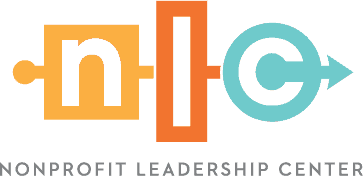When you think about all the traits that make leaders successful, there’s one that is often overlooked: positivity. In today’s complex business environment, great leaders prioritize positivity and authenticity. But what is positive leadership and why should you focus on it?
Positive leaders provide the guidance and resources necessary for their team members to do their best work. This includes:
- Cultivating a growth mindset and embracing optimism and resilience to foster mental fitness and adaptability
- Encouraging diversity, inclusion and a sense of belonging, so all team members feel valued and respected
- Delegating tasks and projects while allowing autonomy in how each individual approaches their work
A positive leader’s contagious attitude can foster a culture of loyalty and trust within an organization, improving cooperation and decreasing conflict.
4 Essential Strategies for Embracing Positive Leadership
Positive leadership enables extraordinary performance by cultivating an environment that encourages and empowers employees to perform at their best. Leaders who take a positive approach to behavioral and social change embrace four essential strategies:
- Positive Climate: Positive leadership cultivates work environments rooted in compassion, forgiveness and gratitude. A positive climate supports employees’ well-being and fosters a culture where team members feel valued.
- Positive Relationships: Building and nurturing strong relationships across all levels of an organization is key to positive leadership. Leaders should facilitate positive energy and minimize self-sabotaging behavior to strengthen interpersonal connections and encourage collaboration.
- Positive Communication: Effective leadership begins with positive self-talk and extends to affirming, supportive language with others. By practicing empathy and promoting shared language, positive leaders create an open and engaging atmosphere.
- Positive Meaning: Associating work with a sense of purpose enhances job satisfaction and employee engagement. Positive leaders ensure their teams understand the value and impact of their work, fostering a sense of fulfillment and purpose.
A Modern Model of Positive Ted Lasso
Imagine what your day-to-day might look like if you embraced some of the positive leadership lessons from Apple TV’s popular character Ted Lasso.
A recent Fast Company article highlighted some key leadership lessons inspired by Coach Lasso:
- Be Curious, Not Judgmental: Prioritize building relationships and understanding others’ perspectives.
- Bench the Bad Players: Address issues with the climate and environment when necessary.
- Admit When You Are Wrong and Apologize: Practice humility and promote open communication.
- Believe: Foster meaning and purpose in the workplace.
- Kindness Matters: Encourage compassion and understanding.
- Be a Goldfish: When mistakes happen, try to let them go quickly, learn from them and move on.
These lessons align closely with the strategies for positive leadership and underscore the value of embracing authentic leadership principles.
The Strategic Advantages of Positive Leadership
Organizations that prioritize positive leadership can achieve remarkable outcomes and gain a competitive edge in today’s business landscape.
The literature on positive psychology and positive organizational scholarship emphasizes the importance of individual contributions to the success of well-being initiatives. By leveraging individual strengths, organizations can drive improved performance, enhance job satisfaction, and encourage more positive relationships. This breeds leaders who embrace authenticity, own their experiences, and make choices from their positive core of values, strengths and purpose.
Positive leaders grow energy and generate new ideas to tackle challenges creatively and innovatively. By applying these strategies, leaders can transform stumbling blocks into building blocks for organizational success.


